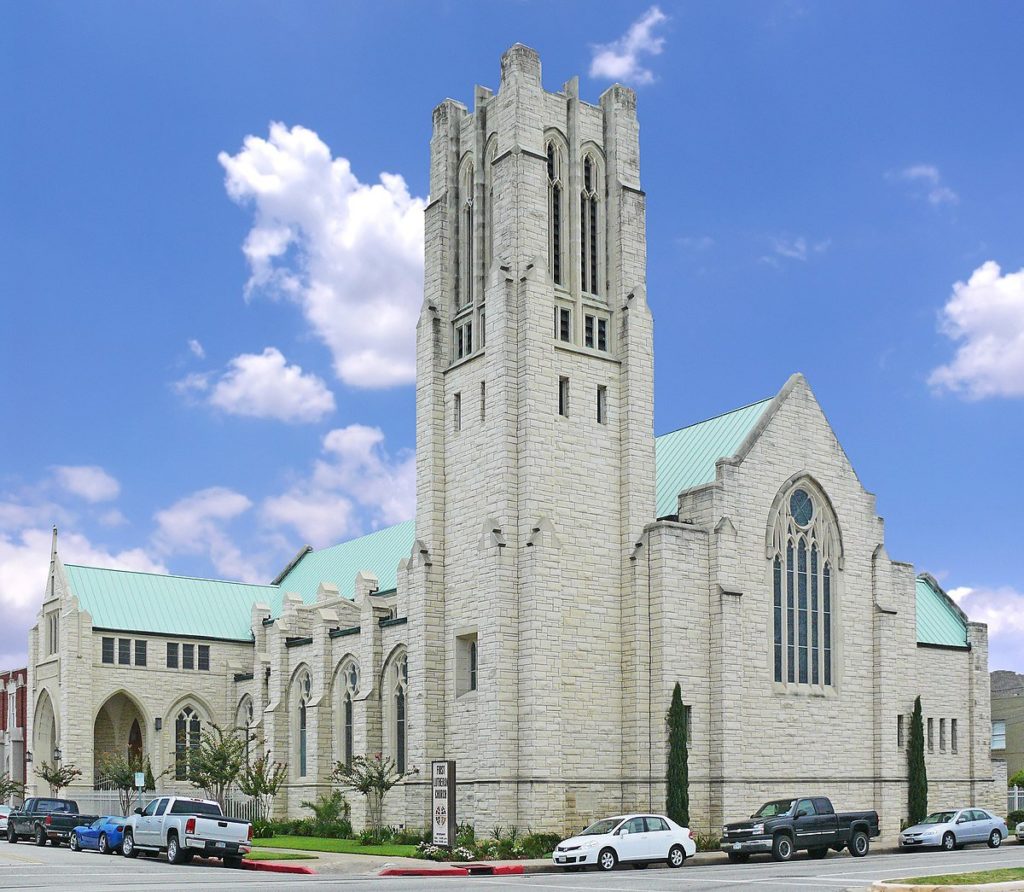The 13-million-member United Methodist Church is shattering, and traditionalists are building a new Global Methodist Church committed to theological and ethical Christian orthodoxy. Are the new wineskins of a new denomination preferable to remaining a faithful witness within an old denomination?
There are pluses and minuses to each, and neither offers a straight and smooth path.
Traditionalists of other mainline Protestant denominations have faced similar situations in recent years. Official endorsement of liberal teachings on sexuality persuaded some conservatives in the Evangelical Lutheran Church, Presbyterian Church (USA), and Episcopal Church to create new denominations or join other preexisting denominations. Episcopalians formed the Anglican Church in North America, which has nearly . Presbyterians joined the Evangelical Presbyterian Church, with , or created the Evangelical Covenant Order, with nearly . Lutherans created the North American Lutheran Church, which now has about .
(Read rest here.)






Comment by Jeff on August 17, 2022 at 12:25 pm
>> traditionalists are building a new Global Methodist Church committed to theological and ethical Christian orthodoxy
But are they REALLY “…committed to theological and ethical Christian orthodoxy”?
There are signs that might be the case… we hope. But hope in a human institution is not a success strategy.
If one studies the transitional documents and the placeholder new “book of discipline”, one discovers that SOME things, e.g. the process of employment and continued governance of the tribe by and for clergy and episcopacy, with minor participation by laity, are covered in exhaustive detail.
But many of THE MOST IMPORTANT things… e.g. “our theological task”… are to be determined only at some later date in a fuzzily specified way by who-knows-exactly. I might add, those most important things are to be pinned down only AFTER congregations departing the psUMC have already committed to join the GMC.
Be aware, at these to-be-determined “theology working group sessions” there will be enormous pressure from the “wokies” to immerse the new sect in the pagan, globalist, institutionalist zeitgeist.
When the dust settles, I hope that, theologically speaking, the GMC will actually actually turn out to be what the GMC salespeople like you, Mark, infer to your readers that it will be. But again, hope is not a good strategy where men with worldly interests are involved and the theology has not yet been clearly specified.
Suggestion to all prospective GMC laity and clergy: obtain and actually READ the documents for yourself, and don’t be lulled into a false sense of security by the biggish section containing the theology of Wesley, the Nicene creed, etc., which are to be treated as foundational but are not the final word on the theology. Look especially for the sections that spell out all the stuff that will be added at some future date… it’s mighty important stuff with some big theological holes in it!
Blessings
Jeff
Comment by David S. on August 17, 2022 at 1:08 pm
“People expecting perfection in a new “orthodox” church will be disappointed.”
In some respects, this is the best advice of this whole article. It brings to mind a series that an Presbyterian and Reformed blogger/aggregator carried, where this individual left Presbyterianism due to the continued slide into heresy and apostacy by the PC(USA) for the ACNA. However, the individual, who appeared to have been a cradle Presbyterian, was expecting a largely Presbyterian and Reformed polity for matters not directly associated with the hierarchy of church governance (episcopal vs. presbyterian) by a very notable objection to the lack of adherence to the Regulative Principle, which is unique to the those churches comprising the Presbyterian and Reformed Tradition. The individual also joined the ACNA shortly after its formation, when the 1979 BOC was still be used for transition, and took great exception, due to the so-called Star Wars liturgy, ignoring the fact that the 79 BOC contained the historic traditional liturgy, and usage of the 79 BOC was merely transitional until ACNA created its own prayer book.
The length of the objection series resulted in me never reading it all the way through, but when one elects to leave to go to a new denomination, one must keep perspective. Not everything will be perfect. And if it is the result of a split from an older denomination, then there may be transitional usage of certain liturgies and ceremonies (for lack of better phrasing) until everything can be properly set up. And even then, consider the case of the OPC (more confessional) and PCA (more evangelical), which historically shared church publishing and certain other matters in order to broaden their overall witness through effective stewardship of financial resources.
Comment by John Kenyon on August 17, 2022 at 4:39 pm
The Beav strikes again. He defines “orthodoxy” on a diphthong. Commend to his attention the turmoil in Eastern Orthodoxy happening now Ukraine.
Comment by PFSchaffner on August 18, 2022 at 6:56 am
The UMC poses two perhaps insuperable obstacles to any congregant inclined to a stay-put strategy, that is, inclined to adhere to the local congregation and ignore developments at the denominational level: money flowing up and authority flowing down. One cannot support one’s local church without some of that money flowing up to agencies and causes one might well deem abhorrent — and how can one be a loyal member of that local church while withholding financial support? And of course however one might admire one’s own pastor of the moment, that pastor serves at the sufferance of the bishop and is to some extent subject to denominational authority. I suspect that the transition will not come via big institutional shifts but slowly, member by member, as individuals come to find the situation intolerable and quietly depart, to other churches or to none. Our own pastor took early retirement this year, another way to quietly walk away.
Comment by Pat on August 20, 2022 at 11:07 am
My wife and I left the Methodist church, due to denominational leadership. Our pastor is a traditional pastor, yet we can no longer support or accept the failed denominational leadership of the USA Methodist Church. Leadership in the USA Methodist church has simply become a pagan false religion ignoring God’s expectation for His church. Nothing more to say.
Comment by David Gingrich on August 21, 2022 at 6:57 am
Former UMC-er here. I hope we have learned that big, centralized bureaucracies lead to very bad things.
Comment by Wayne on August 22, 2022 at 12:41 pm
Another ex-UMCer here. Remember Lord Acton’s sage words: “Power corrupts, and absolute power corrupts absolutely!” The current UMC is a diseased and dying institution and needs to be left to wither away and die out.
Comment by David Thrower on February 9, 2023 at 9:53 am
Another recent split worth mentioning is the Covenant Brethren Church, which split fro the Church of the Brethren a few years back for similar reasons. Although Catholic myself, I think the conservatives in these groups are doing the right thing, and they need to be commended for voting with their feet and not supporting this “woke” garbage in mainline churches.